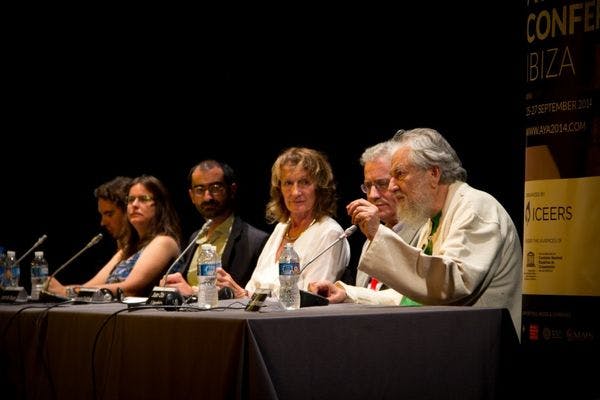The long march of ayahuasca – From the Amazon basin to UNGASS 2016
Read here the full article.
The World Ayahuasca Conference (AYA2014), held in Ibiza on September 25th-27th and organized by the ICEERS Foundation gathered more than six hundred professionals and non-professionals, with an interest in this psychoactive Amazonian beverage, coming from nearly 60 different countries: shamans, psychologists and therapists, anthropologists, lawyers, doctors, drug policy experts and even some government representatives shared and enjoyed, in the symbolic and privileged environment of this Spanish island, workshops, book presentations, film screenings and conferences of the most prominent experts in the field such as Jonathan Ott, Dennis McKenna, Claudio Naranjo or Bia Labate, naming just a few of the 100 international experts that participated for this event. Renowned personalities from the drug policy arena such as Ethan Nadelmann, Amanda Fielding, Pien Metaal, Rick Doblin or Kasia Malinowska-Sempruch and many drug policy researchers and activists also attended, turning AYA2014 into a pivotal moment in the history of ayahuasca in the broader drug policy context.
For hundreds of years, Amazonian indigenous societies have been using ayahuasca to facilitate the physical and psychological health of the individual as well as the community. However, Western societies are in general repressive and intolerant towards the potential of plants with psychoactive properties, mistakenly interpreting their use as destructive and addictive, even though they are increasingly being recognized for their potential role in psychotherapeutic processes and the improvement of interpersonal relations.
The grey zone in which ayahuasca is located nowadays encouraged ICEERS to give the legal and political issues a prominent place within AYA2014. The conference was intended to be a space for joint reflection and discussion, building a bridge between ayahuasca churches legal strategists such as Santo Daime and União do Vegetal, lawyers that have defended ayahuasca cases worldwide and drug policy researchers and activists.
In order to support this endeavor, the first meeting of the so-called Ibiza Expert Committee for Regularization of Psychoactive Ethnobotanicals took place within the Conference, intended to be a starting point for a multi-faceted international campaign aimed at rightful, justified, regulated, professionally managed use of psychoactive plants for individual and social benefit.
In addition to the need for assistance in the context of legal ambiguity in which ayahuasca unfolds today, ICEERS also is committed to foster a change of scenario. Particularly, its intention is to fight INCB attempts to control traditional plants. In this sense, learning from the experience of other substances such as cannabis and coca for the defense of ayahuasca, within a context of drug policy evaluation and reform is essential. Therefore, perhaps one of the main achievements of AYA2014 has been "to introduce" ayahuasca to drug policy activists and professionals. And vice versa: to introduce to the ayahuasca community the political strategies being developed for other substances in different contexts. Building a solid networking and political strategy for psychoactive plants vis-a-vis UNGASS 2016 could be a good starting point.
Keep up-to-date with drug policy developments by subscribing to the IDPC Monthly Alert.
